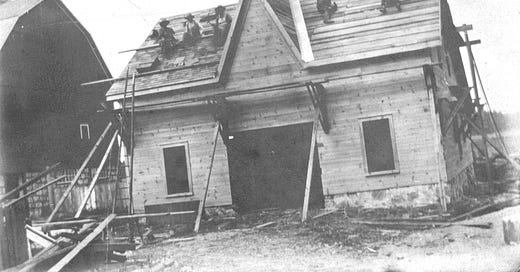I just came off a semester of teaching, and my mind is still fizzing with ideas generated and shaped in conversation with students. My most recent thoughts about composition have revolved around the idea of elaboration, or, the way you take a basic statement and use various techniques to spin it up into a lengthy, complex, multi-faceted work. In this view, all techniques are techniques of elaboration, ways of creating opportunities (I call it aesthetic space) for inventing new material, perspectives, patterns, and meanings. In other words, technique is not just something one learns for the sake of learning it. Technique is a mode invention (elaboration) in itself. It creates content.
Here’s an excerpt from a letter I wrote this semester:
Elaboration is my word for a bundle of techniques and processes for expanding, filling out, detailing, and concretizing a given subject, passage, sentence, clause or phrase (you could also add making the topic entertaining and interesting to the reader). The rhetorical term for this is AMPLIFICATION1, which you can look up. You can think of them as techniques for working upon a given subject, manipulating it and adding information by using forms, by formal means.
This, for example, even a simple but-construction can be a technique of elaboration (or amplification).
My cat Luna was grey.
My cat Luna was grey, but ______________________.
My cat Luna was grey, but sometimes in the morning light the sun would catch the tips of her fur and she would glow silvery or in the afternoon golden, liquid and charmed. At night she is black, almost invisible except when she is sleeping on the white counterpane. She is seen best in moonlight when her grey becomes almost translucent...
In this case, the form, the but-construction creates an empty aesthetic space for you, the writer, to fill with addition material (and then once you have an idea, you can keep adding). [Once I invented the idea of how the cat’s color changed in the morning sunlight, it was only natural to add a contrast in the afternoon sunlight. Then I added a series (list) of adjectives. Then, feeling myself on a roll and still in the aestethic space created by the but-construction, I asked myself what the cat would look like at night and that suggested invisibility, which led to the contrast of the cat black against the white counterpane (elaborating by contrast). And night suggested moonlight. And so on. The word “grey” in this instance is elaborated into a complex series of light/color manifestations. I.e. But-construction plus list (series) plus contrasts.]
You can in this way elaborate or amplify any subject by inserting forms: but-constructions, parallels, metaphors, lists (series), rhetorical questions, contrasts, anthitheses, references to relevant external texts or authors, an emotional statement, an aphorism, a piece of reflection (or memory), etc (the list, as I am sure you can appreciate is open-ended).
The key thing that people learning to write don't usually appreciate is that form precedes content2, that is, you don't think up content ahead of time. First, you use a form, a device, to create a space, and then you are FORCED to fill it with material that might not have occurred to you before.
Instead of asking yourself What am I going to say about Luna? You say to yourself, e.g., I am going to stick in five rhetorical questions and a list and a but-construction. Then write to that suggestive template. See what happens.
It’s almost as if amplification is the basic mode of composition and all forms, structures, and techniqus can be classed under it. Here is the Brigham Young University rhetoric entry for amplification. You can go all the way down the list (always thinking, well, how does that work in contemporary writing?) to the bottom where there are additional links to figures of repetition and figures of description.
Before I ever started teaching, I made it a point to write out my basic approach to the idea of composition. This is in an essay called “The Novel as a Poem,” which is my first book of essays Notes Home from a Prodigal Son, but is also posted on Numéro Cinq Magazine here. This essay informs the way I read and write, though, of course, over the years the ideas of have evolved. The idea of elaboration, for example, has only entered my way of thinking quite recently.




Form before content puts it succinctly. Maybe, in this space, you will reprint Novels and Dreams, which I printed out ages ago (it seems). I underlined this sentence. " To have read enough to feel the oceanic movement of events and ideas in history; to have experienced enough to escape the confines of a personal provincialism; to have distanced yourself enough from your hang-ups and pettiness to create words reflecting the emotional complexity of minds beyond your own......" We try.
Much appreciated, Doug. So clearly expressed and so helpful. Your writing on writing is the finest out there.